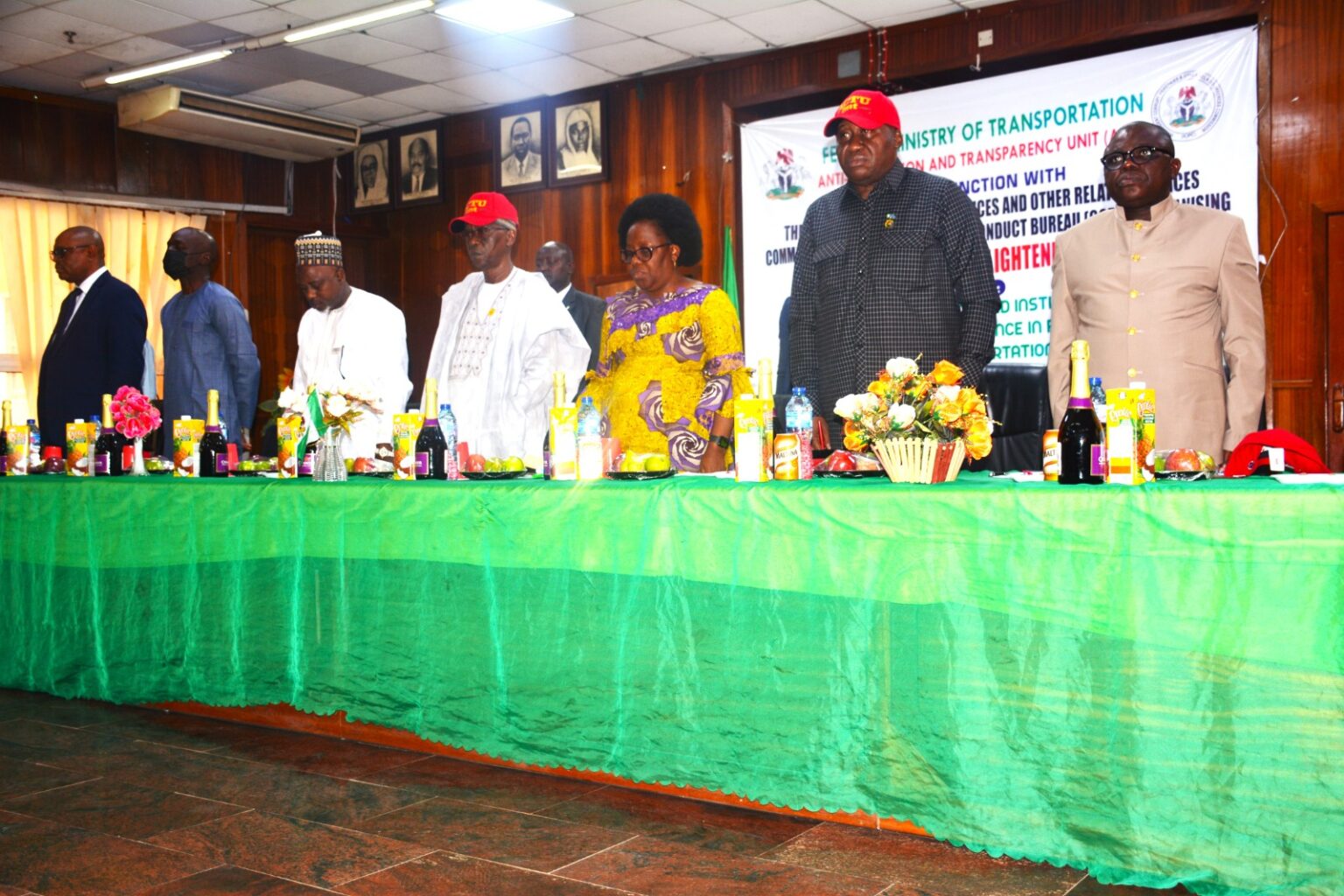The Chairman of the Independent Corrupt Practices and Other Related Offences Commission (ICPC), Professor Bolaji Owasanoye, SAN, OFR has stated that the effect of corruption in the country’s public service can be linked to inefficiency and lack of integrity displayed by government officials tasked with the mandate of managing public funds and resources.
He stated this in his keynote address during the sensitization/enlightenment workshop conducted by the Federal Ministry of Transportation in Abuja recently.
The ICPC Boss, who was represented by a Board Member of the Commission, Dr. Louis S. Mandama, mni, noted that every sector of the country experiences the effects of corruption at an endemic level, and this adversely affects the provision of infrastructures, national stability and global image of the country.
“One of the major reasons contributing to the crisis is the inefficiency and lack of integrity displayed by government officials tasked with the mandate of managing public funds and resources. The issue of corruption and its attendant problems in our country therefore requires constant interventions and the development of multi-faceted approach in tackling the hydra-headed monster.”
He added that ICPC, enabled by its establishment Act, has a robust approach to fighting corruption using enforcement, prevention and public enlightenment and education strategies, noting that one of its strong initiatives is the Anti-Corruption and Transparency Unit (ACTU) which is set up in government Ministries, Department and Agencies (MDAs) to assist in building strong and transparent institutions through constant sensitization of staff on the ills of corruption, study of the operations of their respective organisations, and recommending appropriate measures to block corruption vulnerabilities, ensuring staff compliance with ethical codes amongst others.
The Chairman however commended the management of the Ministry of Transport for its constant support to its ACTU, particularly in the area of providing funds for the Unit to sensitize staff as well as the approval and adoption of the ACTU initiated and domesticated Codes of Ethics for the Ministry.
“Your Ministry’s support to ACTU and its compliance rating, are testament of the Management’s receptiveness to adopting practical initiatives in fighting corruption within the Ministry.”
He further encouraged the Management of the Ministry to continue to strive towards adopting and displaying anti-corruption strategies in its operations.
“Conversely, staff should discharge their duties diligently and accountably and suggest useful recommendations that would bring about a radical change in the Ministry and in our national development. Public office is a vehicle to promote transparency and accountability in government business. The ICPC on its part would continue to collaborate with the Ministry in ensuring that integrity and transparency are promoted at all levels.” he advised.
On her part, the Permanent Secretary of the Ministry of Transport, Dr. Magdalene Ajani, identified corruption as one of the causes of inefficiencies in the Civil Service saying the Ministry is in collaboration with the ICPC and CCB on ways to curb it so as to enhance and achieve effective service delivery.
“It is very key in the Public Service to give Nigerians that trust that the Public Service can be free from corruption and services can be rendered more efficiently. This sensitization effort is one of the strategies aimed at sanitizing the public sector and ensuring that Nigerians live in a corrupt-free society.”
In his paper titled: “Tackling Systemic Corruption in the Public Service- the ICPC Approach” Mr. Abbia Udofia, the ICPC’s Director of System Study and Review Department, detailed factors that cause corruption and the measures the Commission had introduced to curb it which include System Study and Review, Corruption Risk Assessment, Ethics and Integrity Compliance Scorecard, Constituency and Executive Projects Tracking Initiative, and ACTUs.
He also reiterated the need for public officials to support government in building and maintaining ethical infrastructures; check impunity; and support government anti-corruption initiatives.
“Public office is a trust and we must appreciate the privilege of being elected/appointed to serve. The Commission encourages MDAs to adopt strategies outlined above in checking and improving their operations. ICPC would continue to collaborate with public and private agencies in the campaign against corruption” he said.


